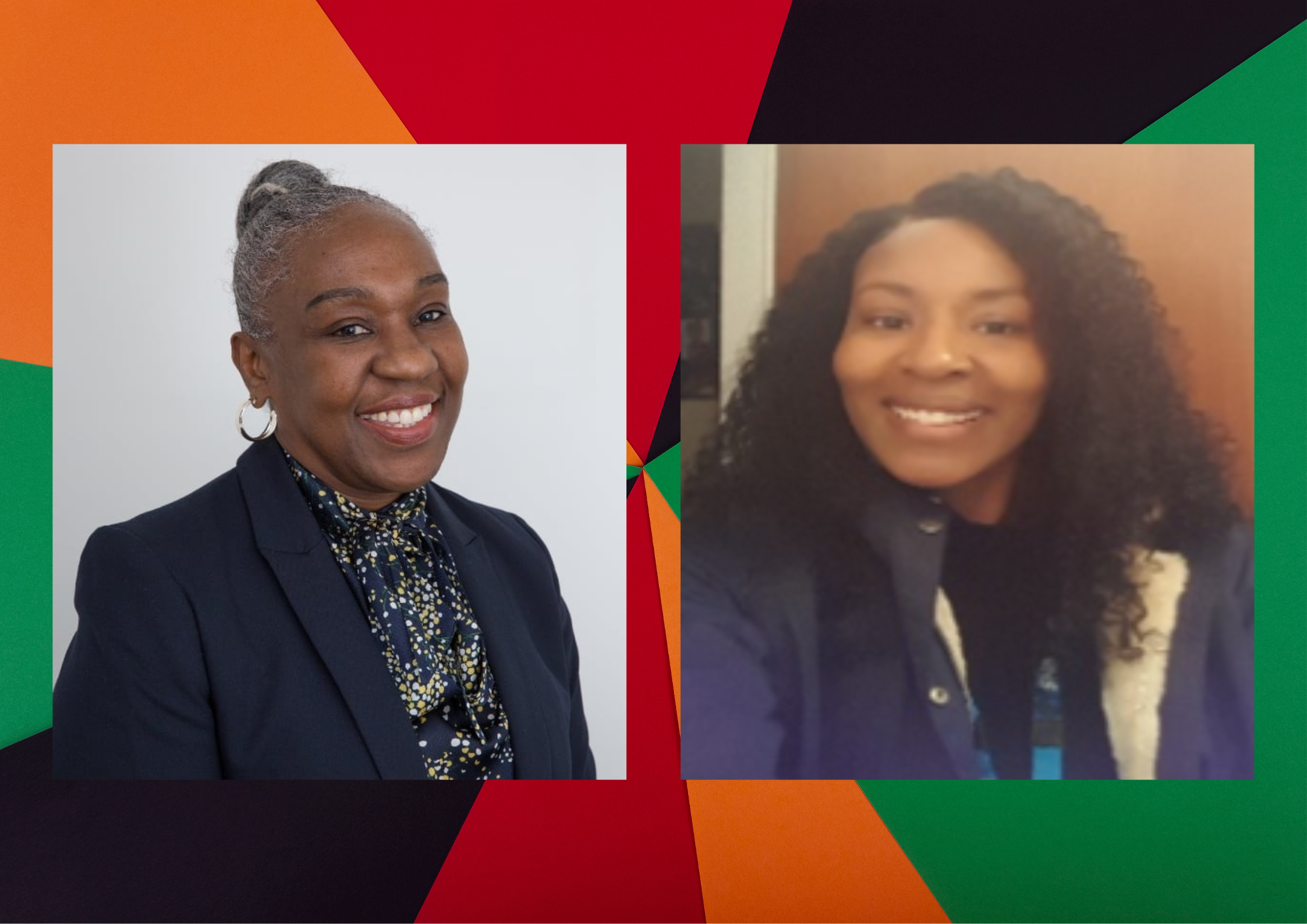Two HCPC registrants share their reflections on the narrative around diversity and representation in healthcare, as well as their commitment to support and celebrate each other’s successes.

- Dr Pameleta Ricketts is a HCPC-registered occupational therapist and was the HCPC’s first Council Apprentice. Pam has worked in a range of leadership/management roles and her current role is Professional Lead for allied health professionals in a large Community NHS Foundation Trust.
- Leona Blake is a HCPC-registered Highly Specialist Speech and Language Therapist. Leona has worked in a range of leadership roles with her current role being the Head of Patient Experience and Engagement in an NHS trust.
Our story, our voice
Pam and Leona initially met when Pam was on a stakeholder panel for a position that Leona ultimately was successful for. Pam reached out to Leona to offer feedback and support within her new role and their working friendship begun.
We both recognised that we had a shared understanding of the vulnerability involved in supporting one another. 'Ultimately you are trusting someone with the honesty about your strengths and areas of development.' We individually recognised the worth of supporting one another which could only come from having honest and safe conversations. This is one of them.
The NHS Long Term Plan (NHS England, 2019) highlights the importance of diverse clinical leadership to ensure high quality patient care and acknowledges that allied health professionals (AHPs) can significantly support the demands the NHS faces.
If you want to go fast, go alone; if you want to go further, go together.
A pervasive narrative in UK culture is that women in general compete with each other, and this is perceived to be more prevalent when you are within a minority group.
We have been told that our fields are competitive and seen evidence with our own eyes.But when we look at ourselves we don’t recognise this image. We recognise the strengths in our experiences that have brought us to this point, as well as the communities that we come from and represent. We know that this translates to better care and stronger service for the public and our service users.
We want to encourage all registrants to see the value in making connections that inevitably make us all better practitioners. Celebrating our expertise, our lived experiences and the different ways that we work is invaluable. We regularly share new ways of working, networking opportunities, peer supervision and words of encouragement with each other.
We want to continue to work on increasing inclusion and diversity within our professions so that the workforce is reflective of the patients and communities that we serve. This not only promotes shared learning and understanding of our diverse cultures but instils confidence and safety in those using our services. This makes our services safer for the diverse communities that we serve.
Our journey
We have both been the only Black women in a number of rooms. We want to reframe that to us being the first: our expectation is that there will be more of us, who haven’t traditionally been present in certain rooms, being present in the future.
We believe we will achieve the most when we rise together. That’s why we actively celebrate each other’s successes, and both of us can often be heard amplifying the message that there is enough room for us all.
We are committed to supporting the development of others and relish opportunities to ‘pay it forward’ – using our positions and our voices to uphold the HCPC principles and standards of practice, to ensure protecting the public is done in an equitable way. Moreover, we want to see greater diversity at senior leadership and executive levels. 'You can be what you can see!'
Representation
Whilst the number of HCPC registrants continue to grow year on year, diverse representation across AHP professional groups remains low.
The HCPC holds equality, diversity and inclusion (EDI) information relating to the nine protected characteristics of the Equality Act 2010. The data, which is available by professional group or by all professions combined, highlights that 5% of all registrants are Black, African, Caribbean or Black British and that 72% of all registrants are female.
Further analysis shows that 4% of the occupational therapy (OT) workforce and only 1% of the speech and language therapy (SLT) workforce are Black whilst 89% of OT and 95% of SLT are female. Unfortunately, the data does not provide information on ethnicity and sex combined, but given the percentage breakdown by ethnicity, the numbers will be low.
The HCPC does not hold data on the roles or titles that registrants have, but we know from experience that progression opportunities can be limited, which means that competition can be rife.
Our collective voices
Our working relationship is testament to how we can uphold the HCPC principles and standards by using our collective voices to challenge and get the best from one another.
We hope that in sharing our perspective, we’ll encourage others to be bold and strong–to step up and step out.
At times it won’t be easy, but taking the time to build a supportive network based on trust and understanding is the perfect recipe for career success.
Take the leap and build those connections with others. There’s enough space for us all to grow and thrive!
Communication: The human connection is the key to personal and career success.
